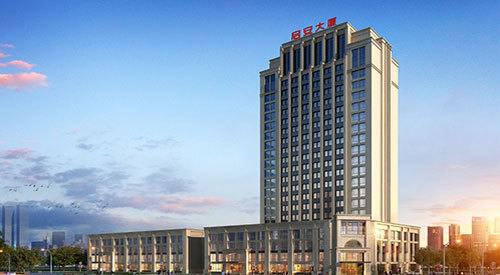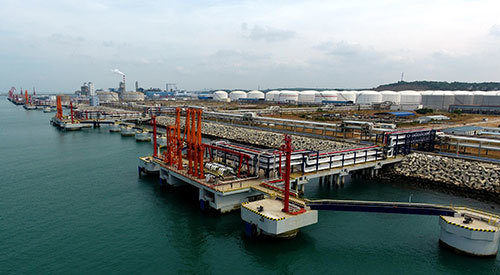Regulations of the Communist Party of China on disciplinary measures
general provisions
Chapter 1 guiding ideology, principles and scope of application
Article 1 in order to maintain the party constitution and other regulations of the party, serious party discipline, the purity of the party organization, safeguard the democratic rights of Party members, Party discipline education, safeguard the unity of the party, ensure that the party's line, principles and policies, resolutions and the implementation of national laws and regulations, according to the "China Communist Party". The enactment of this ordinance.
The second article of this Ordinance to Marx Lenin doctrine, Mao Zedong thought, Deng Xiaoping theory and the important thought of "Three Represents", Scientific Outlook on Development as a guide, thoroughly implement the spirit of general secretary Xi Jinping's important speech series, strictly implement the comprehensive deployment strategy.
The third party constitution is the most fundamental inner-party law and the general rule governing the party. Party discipline is the rule of conduct which must be observed by Party organizations at all levels and by all Party members. Party organizations and Party members must conscientiously abide by the party constitution, strictly implement and safeguard Party discipline, and consciously accept the discipline and discipline of the party, and abide by the laws and regulations of the state in an exemplary way.
The following fourth principles should be adhered to in the work of disciplinary action of the party:
(1) the party should manage the party and strictly administer the party. We should strengthen the education, management and supervision of Party organizations at all levels and all Party members, and put discipline ahead of them, and pay attention to grasping early and grasping small ones.
(two) equality before Party discipline. Party organizations and Party members who violate Party discipline must exercise serious and impartial discipline, and Party organizations and Party members who are not subject to discipline shall not be allowed within the party.
(three) seeking truth from facts. The party organization and Party members in violation of Party discipline behavior, should be based on the fact that, with the Constitution and other regulations of the party and state laws and regulations as the yardstick, accurately identify the disciplinary nature, different circumstances, be treated properly.
(four) Democratic centralism. Party discipline shall be decided and approved by Party organizations in accordance with the prescribed procedures, and no individual or minority shall be allowed to decide and approve it. Party organizations at lower levels must decide on the decisions made by Party organizations and Party members who violate Party discipline, and lower Party organizations must implement them.
(five) the pedagogical, saving lives. Party organizations and Party members who violate Party discipline should combine disciplinary punishment with education so as to achieve leniency and justice.
Article fifth these Regulations apply to Party organizations and Party members who violate Party discipline and should be subject to Party discipline.
The second chapter is disciplinary and disciplinary action
Sixth Party organizations and Party members in violation of the party constitution and other laws, in violation of national laws and regulations, in violation of the party and the state policy, in violation of socialist morality, harm Party and the interests of the state and people's behavior, in accordance with the relevant provisions shall be given a disciplinary sanction or treatment must be investigated.
Seventh types of disciplinary action against Party members:
(a) warning;
(two) serious warning;
(three) to remove party posts;
(four) observing by the party;
(five) expulsion from the party.
Eighth disciplinary measures against Party organizations that seriously violate party discipline:
(I) reorganization;
(two) dissolution.
Ninth Party members were warned, within a year, a serious warning, within one and a half years, shall not raise their duties in the party and recommend non Party organizations higher than their original post of non party positions.
Tenth, the removal of Party disciplinary action refers to the withdrawal of Party members affected by the election or organization of Party appointments within the party post. When the party organization holds two or more posts, the party organization shall decide whether to withdraw all its posts or to hold a post when deciding whether to take disciplinary action. If a decision is to be taken to remove a position, the highest post shall be revoked. If the decision is made to remove two or more posts, it must be withdrawn from its highest position. In the case of holding a post in a non party organization, it shall be suggested that the non Party organizations should make corresponding treatment in accordance with the regulations.
If the party has to be removed from the party's duties, but I am not in the party's position, it should be given a serious warning. In the case of non Party organizations holding their posts, it is recommended that non Party organizations withdraw their non party posts.
The party punished by removal from party posts, or in accordance with the provisions of the preceding paragraph shall be subject to a serious warning, and as a recommendation to non Party organizations as equivalent to their original job than its original job or position in the party in two years.
The Eleventh Party to observe the punishment, divided into leave the party for a year, leaving the party for two years. A party member who has been punished by the party for one year after the expiration of the term does not meet the conditions for the restoration of Party members' rights, and shall be extended for one year before the party's probation period is observed. The term of probation shall not exceed two years.
The party members are not entitled to vote, the right to vote and the right to be elected during the period they are examined and dealt with by the party. If a party does repent during the period of inspection and restores his party member's rights after the expiration of the term, he shall be expelled from the party if he insists on not changing or discovering other disciplinary actions which should be subject to disciplinary action by Party members.
Party members are subject to probation by the party, and their functions within the party will be revoked naturally. In the case of non party posts, it is recommended that non Party organizations withdraw their non party posts. Within two years after the party members who have been investigated and punished by Party members have resumed the rights of Party members, they may not serve as Party members or recommend themselves to the non Party organizations as equal to or higher than their former posts.
Twelfth party members were expelled from the party, five years may not rejoin the party. If there are other regulations, no party members may be allowed to rejoin the party, according to the regulations.
If the representatives of the Thirteenth Party congresses at various levels are subject to punishment by the Party (which is subject to the party's probation), the party organization shall terminate its representative qualifications.
Fourteenth, for












